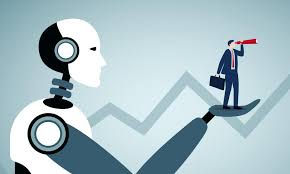How AI is advancing humanity and reshaping the world
- Thanos Athanasiadis

- Oct 23, 2025
- 3 min read
AI is reshaping the world in profound ways, enabling us to automate tedious tasks so we can concentrate on what truly matters. This technological shift is moving humanity forward by freeing up resources that were once consumed by repetitive, trivial, and routine tasks. In doing so, we create space for strategic decisions, significant tasks, and critical thinking that will advance our civilization.
Historically, a similar shift occurred with the advent of computers. Although computers significantly improved efficiency, they still required manual planning and input from human operators. Now, AI agents can not only perform tasks but also take over the input aspect, significantly enhancing our interaction with technology.
The "Input Bandwidth" Problem
One critical challenge in human-computer interaction is known as the "input bandwidth" problem. This refers to the limited amount of input we can give to computers at any given time to execute tasks. Whether we are planning a night out at a restaurant or ordering items online, these actions typically involve multiple repetitive steps. AI agents have the potential to streamline these processes and act as our digital workers.
AI Agents breaking the "Input Bandwidth" Problem
The development of Large Language Models (LLMs) has improved the communication between humans and machines. We can now categorize AI agents based on the method of input they utilize:
1. Text-based Agents: Users input commands in text form, allowing the agent to gather context and perform tasks or provide answers.
2. AI Voice Agents: These agents respond to verbal input, expanding the input bandwidth. Unlike text-based agents, voice communication allows humans to express their needs much faster.
3. Brain Signal Agents: This category, which may seem futuristic but is already being developed, involves agents that can interpret brain signals as input. Companies like Neuralink are pioneering this technology, which enables near-instantaneous actions based on thought.
4. Predictive Brain AI Agents: These agents take automation a step further by recognizing human needs without explicit input. By observing day-to-day behaviors, they can identify needs proactively. For instance, if a user frequently stays late at the office, the agent might suggest ordering dinner, anticipating the user's lack of time for cooking.
How AI is going to affect our lives
AI will empower us to transcend the constraints of human evolution, furnishing us with powerful tools to enhance our daily lives. There is a well-known saying, "You are not going to lose your job to AI; you will lose your job to someone who knows how to use AI." This statement highlights the importance of adapting to technological advancements.
Jobs that are less likely to be affected by AI are often manual labor positions since robotics must advance further before they can genuinely replace human workers in this field. However, automating digital tasks is likely to progress much more rapidly.
The impact of AI on various dimensions of our lives is undeniable. It will transform our personal, professional, and business environments in distinct ways:
1. Personal Life: We will evolve beyond relying on our smartphones for every task. AI can operate in the background, serving as an assistant that doesn't require constant input. Picture augmented reality glasses displaying widgets with real-time updates as we manage tasks like phone calls, shopping, or navigation seamlessly.
2. Working Life: Hybrid teams composed of both humans and AI agents will become the norm. Agents will likely take on the most repetitive tasks, allowing humans to focus on oversight, reviews, and more administrative or strategic responsibilities.
3. Business Life: AI agents can optimize and automate core business functions, enhancing customer support and service delivery. Online presence might shift from human readability to being optimized for AI recognition, allowing for seamless information exchange between business agents, thereby enhancing productivity.
Final Thoughts
As we navigate this new frontier, it's essential to embrace the opportunities presented by AI while remaining vigilant about its implications on society. The synergy between human creativity and AI's capabilities may lead to remarkable innovations that could redefine our future. We stand at a threshold where technology can amplify our potential, freeing us from the mundane so we can pursue more meaningful endeavors.
_edited.png)


